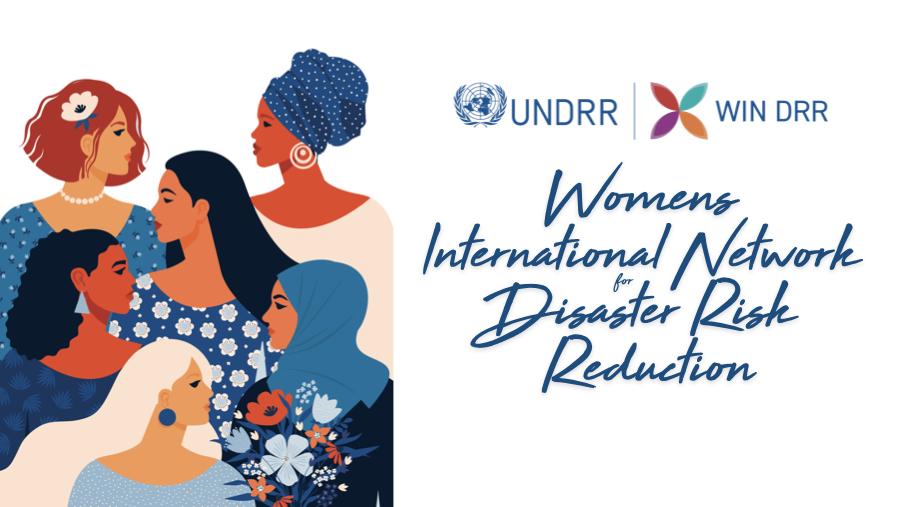Please help us improve PreventionWeb by taking this brief survey. Your input will allow us to better serve the needs of the DRR community.
Women leaders in DRR working for inclusion
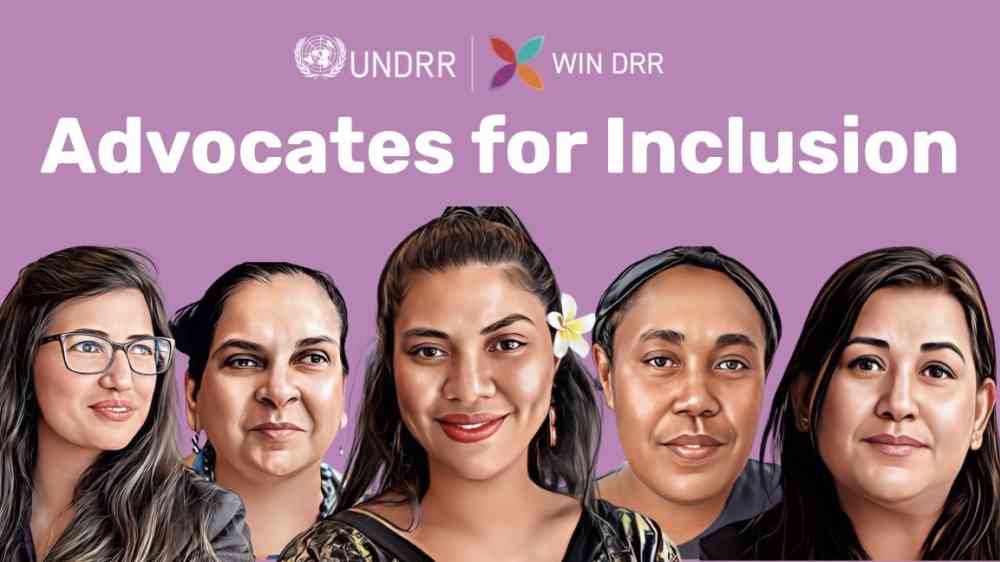
Profiles of advocates and activists working to reduce the disaster risks faced by people living with disabilities, and to make disaster risk reduction, essential services and whole societies across the Asia-Pacific region more inclusive for people living with disabilities.
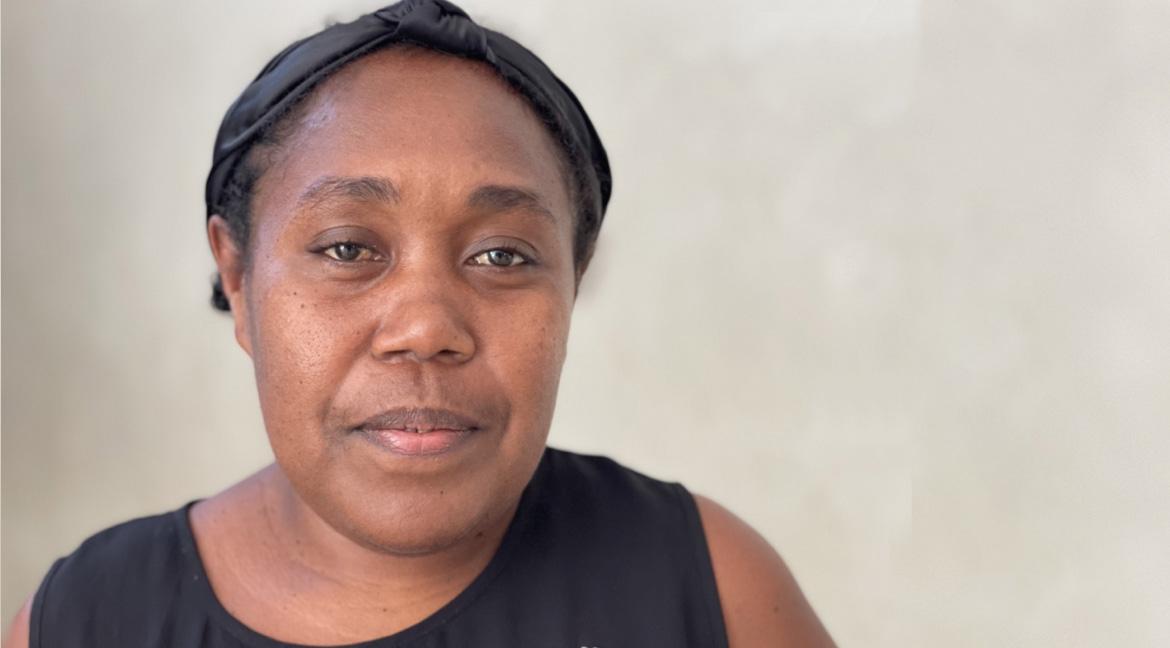
Naomi Tai - Solomon Islands
“We want to see the effective and meaningful participation of persons with disability across all levels,” Naomi says. “We want people with disabilities to raise their voices on multiple issues across all levels of society.” Naomi works on the Disaster Ready Program. She is the DRR officer and in this role coordinates disability inclusion across the program, working closely with partners. “I don’t want the inclusion of persons with disability to just be ticking the box,” she says. “We want to see engagement. What are the practical changes that happened from our actions?” Naomi leads an organisation that advocates for accessibility and the rights of persons with disabilities in different sectors.
“Accessibility is about accessing the different services in the country, education, health services, infrastructure, services in terms of livelihood. All this contributes to how persons with disabilities can face the challenges in our lives.”
Along with Tonga and Niue, the Solomon Islands is one of three Pacific Island countries, and one of 12 countries globally that has not ratified the Convention on the Rights of Persons with Disability,
She conducts training on the Washington Group Questions, targeted questions on individual functioning intended to provide a quick and low-cost way to collect data, which allows disaggregation by disability status, to help partners better understand disability prevalence in the Solomon islands. “Data is very important to inform decision-making,” she says. Naomi helps other people with disabilities understand disaster risk and better prepare so that during a disaster they know where to get information, what to do, and how to get to a safe place or evacuation centre.
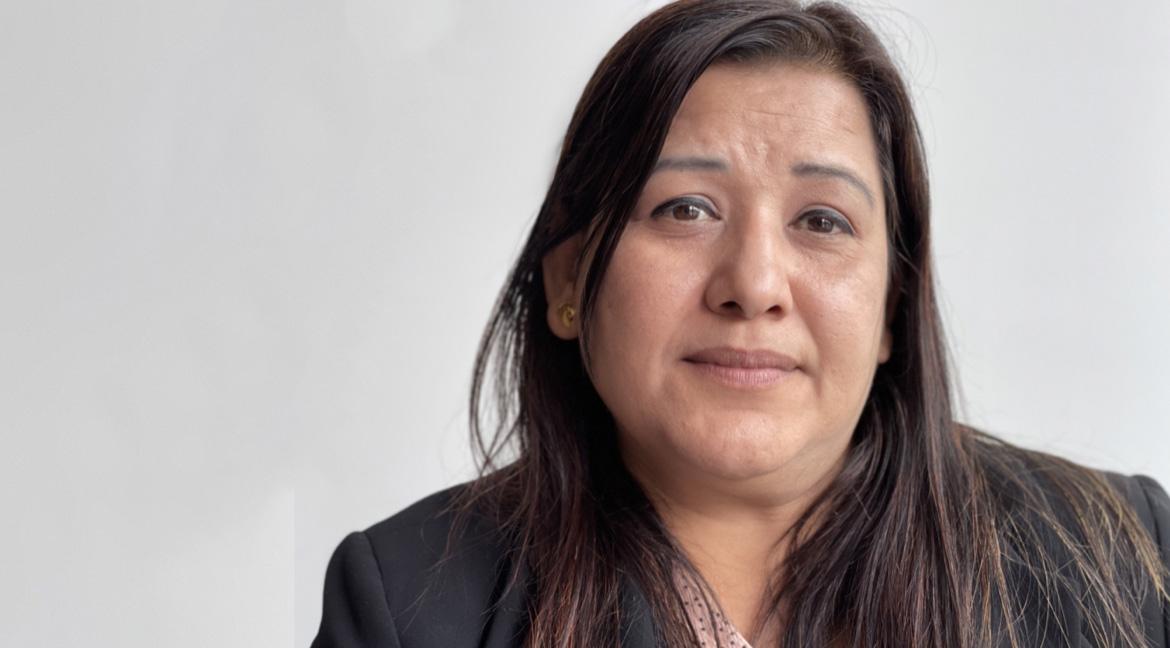
Pratima Gurung - Nepal
“When we have disasters one after another, for groups like us that have multiple marginalised identities, the risks and vulnerabilities that we have are intensified and compounded,” says Pratima. Pratima Gurung leads the National Indigenous Disabled Women Association Nepal (NIDWAN) and is a faculty member at Padma Kanya College in Kathmandu. She says Indigenous women with disabilities are not able to express their needs to authorities, particularly during disasters, because the process itself is difficult.
“There are different layers of identities and needs. If there’s a person who needs a wheelchair but even to ask for a wheelchair they have to ask in a language they don’t speak. When it comes down to the grassroots community this is what happens; this is where we find huge barriers related to access to information, access to services, and access to the decision-making processes.”
She says sometimes that disaster relief is not based on the needs and the priorities that exist at the grassroots level. “This is what we experienced during the pandemic and the earthquake. We are advocating to be included in response, recovery, rehabilitation, reconstruction and relief efforts whenever there’s any kind of disaster.” She says Nepal is at the early stages of inclusion because few women with disabilities have access to information.
“There are advocates on the front line pushing for their rights, their needs and their priorities. People with disabilities have become active agents. They have become contributors.”
She says we need to have more champions of persons with disabilities to come to the table. “They can focus not only on the challenges, but also equally provide solutions of what needs to be done and find collaborative solutions.” She says every government in every country is still learning how they become disability inclusive. “We know that we have a crucial role to collaborate with our government. We need to know what are the decisions that are being made on our behalf because that has impacts in our day to day lives.”
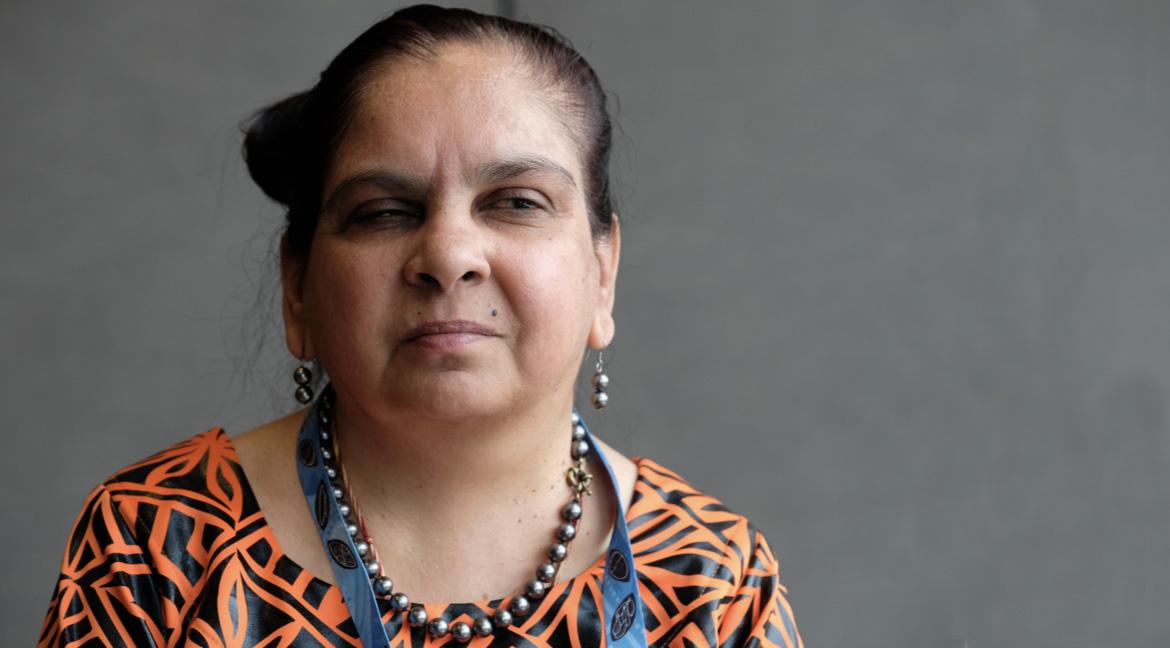
Angeline Chand - Fiji
“Often we are asked why people with disabilities don't want to evacuate to the evacuation centres,” says Angeline Chand. Angeline is the Human Rights and Gender Advisor at the Pacific Disability Forum (PDF). “There are a lot of issues around it: in their home environment they have their family support systems there and they’re used to it. They’re thinking twice about going to a new environment. Are there washrooms that are accessible? Will my support person be able to be with me?” Angeline says access to information is also crucial “When information is given or early warnings are issued about disasters, how is it given to people with disabilities? How does it reach people who are deaf?”
She says in the Pacific, it’s churches and schools that are used as evacuation centres and they are not always accessible. “If I had to evacuate from my house, how would I move around in a new environment? What support systems are in place? That scares me. When we talk about WASH facilities, being a woman with a disability we need our own privacy.” Angeline acknowledges that resources are limited in the Pacific, but she says commitments like the Convention on the Rights of Persons with Disabilities have helped drive real changes with budgets.
“We commit to a lot of things but it all boils down to resources, so we start to prioritise. But who does the prioritisation? There needs to be a dialogue. Often decision makers make decisions without consulting people with disabilities. That dialogue, that partnership leads to better results.”
Angeline says the partnerships need to be nurtured before the disaster hits because often it’s an afterthought. “Now when a disaster happens everyone is taken care of. We know where people with disabilities are and what disabilities they have and what types of support they need.”
“Some people think that with persons with disabilities, one size fits all,” she says. “It doesn’t: persons with disabilities have diverse impairments and have diverse needs.” Pacific Disability Forum is involved in doing access audits of buildings to advise building owners of what adaptations are needed. “We look at how infrastructure needs to be adopted so it can be suitable to everyone in the community.” She says it’s important to strengthen shelters so people can stay in their own community.
“I don’t want to be leaving my community where I’ve been brought up since childhood and have to go somewhere else. It’s very important that we talk about what adaptation is needed. When we talk about WASH facilities; How far are they? How accessible? Can a person with a wheelchair get there? How high are the taps? All of this needs to be consulted.”
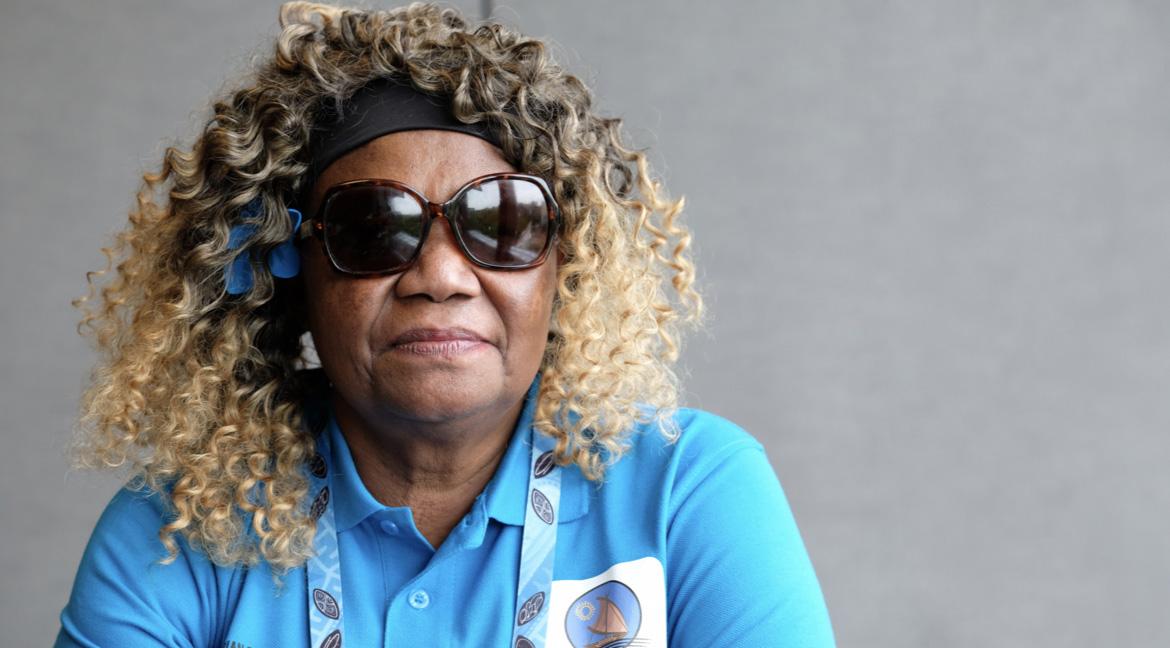
Nelly Caleb - Vanuatu
“I need to stand up for other women and for myself and that’s what I did,” says Nelly. Nelly Caleb is the National Coordinator for the Vanuatu Disability Promotion and Advocacy Association. “We've been promoting disability inclusion a lot in our society. We are doing awareness and we can see the barriers are going down.” But there are still challenges.
A recent review of 300 laws in Vanuatu found that over 100 needed to be reviewed to make sure they comply with the Convention on the Rights of Persons with Disabilities. And even when the laws and policies are in place, they aren’t always implemented. “We had a volcanic eruption in the south last year. We could see that people with disabilities are still being left out. Even though the government's policy on climate change and disaster risk reduction is inclusive, it’s only on paper.”
Nelly trains partners on collecting data and how to use the Washington Group Questions, and advocates for universal design. “It’s easy to find now how many people are in wheelchairs in that area. If buildings are not accessible, it is an issue for everybody. You’re growing older, you're going to have a walking stick, you're going to use the ramp. Your daughter-in-law might be having a baby and I use that ramp access because it’s easier. Inclusion benefits everyone.”
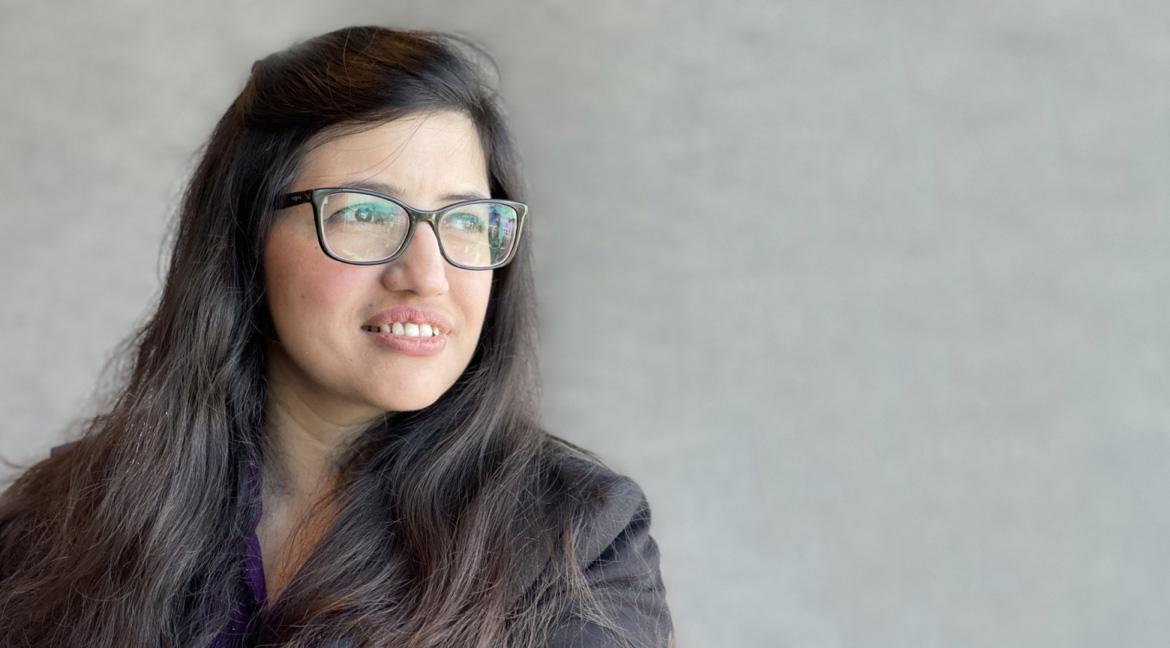
Abia Akram - Pakistan
“The recent floods are a huge disaster,” says Abia. “Persons with disabilities are not getting access to basic services and some were unable to be evacuated because resources weren’t available.” Abia Akram is the CEO of the National Forum of Women with Disabilities in Pakistan, and part of the Disability Task Force within the humanitarian response system, though she says there are still systemic barriers that persons with disabilities face in emergency response. “It’s really important how you develop disaster risk reduction plans and link those to emergency response. We cannot wait for another decade to see the changes needed.” She says a big challenge is that the voices of organisations of persons with disability (OPDs) are not included.
One early oversight in the flood response was that the initial rapid assessment didn’t include a single question on persons with disabilities. “There’s a need to build capacity within the humanitarian system and and persons with disability need to be included. When humanitarian actors work jointly with the organisations of persons with disability then the response is more inclusive. In the recent past women and girls with disabilities are still being left behind.”
She says there were cases where parents left children with disabilities behind when they evacuated their homes because they could not carry them out. Abia says washrooms are still not accessible in some camps.
“Many of the women with disabilities face violence from the people that are there to protect them.”
She says the Government is supportive and is willing to work together with OPDs. “They need to understand more about disability inclusion. It’s been over two decades that we’ve been pushing for this agenda, talking about disability inclusion, but there are practical barriers that still exist. We need to break them down in a systematic way.”
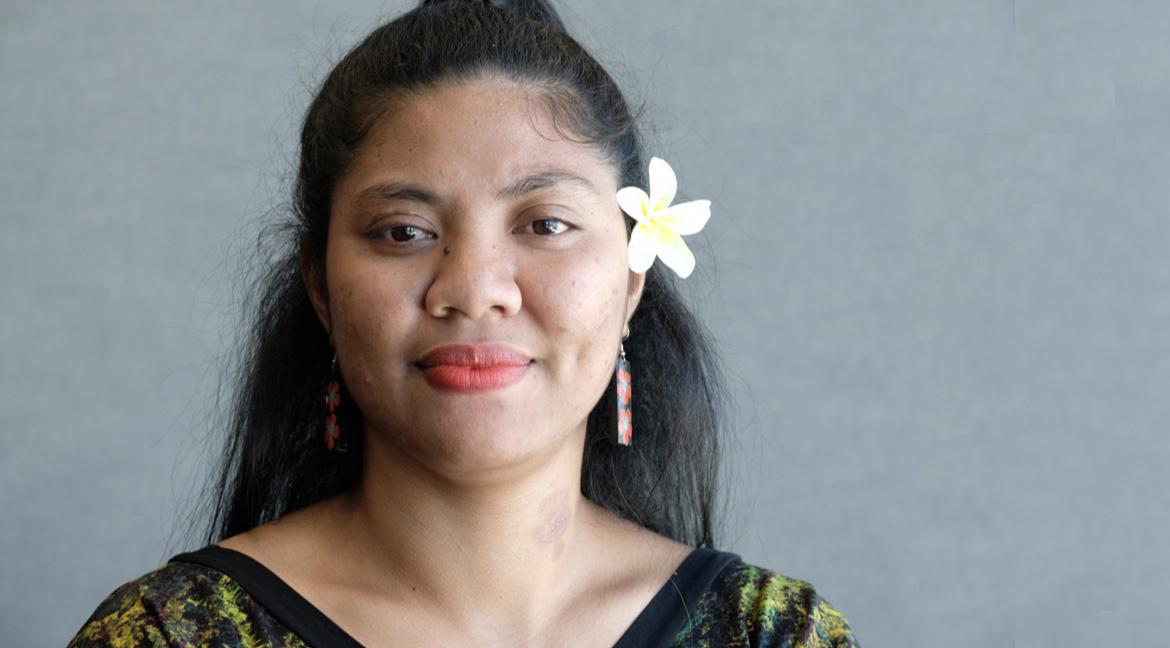
Maselina Iuta Fiso - Samoa
“My role is to advocate for the rights of people with disabilities and work with the Deaf community in Samoa to ensure that they are able to participate in all aspects of society” Maselina says.
“We do a lot of work with deaf people in rural areas. We are trying to learn better ways to address the specific barriers they experience, and advocate at community and national level for the realisation of their rights as guided by the Convention on the Rights of Persons with Disabilities.”
Maselina leads advocacy campaigns with the Deaf Association of Samoa engaging stakeholders such as the Samoa Meteorological Office, Ministry of the Prime Minister and Cabinet, and the National Disaster Management Office to prioritise the voices and needs of people who are Deaf and hard of hearing in Samoa. Maselina was a finalist for the 2022 WIN DRR Rising Star Award and is a Founding Member and Project Officer for the Deaf Association of Samoa. During outreach activities, Maselina leads training and workshops throughout the inhabited islands of Samoa with Deaf and hearing community members related to human rights education, disaster risk reduction and gender-based violence. She says growing up in Samoa with a disability was extremely challenging.
“Growing up, there were a lot of barriers. There was nothing. No access to sign language or education. I couldn’t understand, I couldn’t read and I couldn’t write for many years. It wasn’t until I was 13 that I first learnt sign language, and had the opportunity to read and write, and even now, I continue to work hard to improve my education."
Learn more
Join the Women’s International Network on Disaster Risk Reduction
The Women's International Network on Disaster Risk Reduction (WIN DRR) is a professional network to support women working in disaster risk reduction, in all their diversity. WIN DRR promotes and supports women's leadership in disaster risk reduction across the Asia Pacific region, and aims to reduce the barriers faced by women and empower them to attain leadership and enhance their decision-making in disaster risk reduction. WIN DRR is supported by UNDRR and the Government of Australia.
Editors' recommendations
Explore further
Please note: Content is displayed as last posted by a PreventionWeb community member or editor. The views expressed therein are not necessarily those of UNDRR, PreventionWeb, or its sponsors. See our terms of use
Is this page useful?
Yes No Report an issue on this pageThank you. If you have 2 minutes, we would benefit from additional feedback (link opens in a new window).
